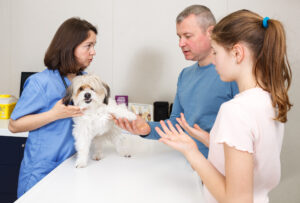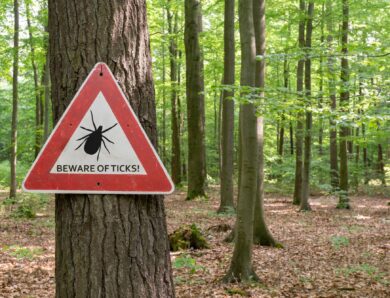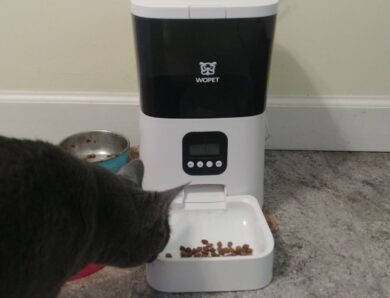
The Top 10 Things Veterinarians Wish You Wouldn’t Do
Is the customer always right? When it comes to pet parents and the veterinarian, the answer is a resounding no. Though your vet, or the vet tech, might now always say anything, there are plenty of times they think you’re in the wrong.
Veterinarians want the best for our pets, just as much as we do. But sometimes we, the pet owners, make their jobs harder than they need to be. Keeping It Pawsome spoke with several veterinarians and vet techs to hear what they wish pet owners wouldn’t do.
Here are the top 11 things pet owners do that bother veterinarians the most.
1. Overfeeding our pets
Most of our pets love to eat, and we love to give them our human scraps, but we should be mindful not to overfeed them.
Continually overfeeding our pets, especially with human food, can eventually lead to obesity. It’s something the vets we spoke to us told us is becoming more common. And, unfortunately, obesity often leads to multiple health issues, reducing our pets’ life spans.
It’s not always our fault, though. One veterinarian we spoke with said we might be unintentionally overfeeding our pets… if we’re solely following the recommended portion on the back of the bag. According to him, the recommended portion on the backs of commercial bags of kibble is often overestimated. Our pets often need a lot less.
He recommended pet owners go over every item that their pets eat throughout the day then have our veterinarians calculate their caloric intake necessary for our pets’ ideal body weight.
If, instead, we want to feed raw or home cooked diets, it’s also best to consult our veterinarians, who can customize a diet to ensure it’s balanced.
From physics to pet food. Found out more about Pet Plate founder Renaldo Webb.
2. Consulting with “Dr. Google”
Just like consulting with Google for our own symptoms is fraught with danger, so is trying to diagnose our pets this way. Looking on Google will turn up lots of information, much of it contradictory, leaving pet owners confused or barking up the wrong tree.
Similarly, going to our friends for their advice is dangerous. Everyone has their own opinions. And most of that is not based on in-depth knowledge or solid facts. Veterinarians go through a minimum of eight years of university-level training in order to be able to provide the best advice for our pets’ wellbeing.
Neither Google, nor our friends can compete with their level of expertise.
3. Being verbally abusive

We love our pets, with all our hearts. It’s stressful when the get sick. And, when the veterinarian gives us an answer we don’t want to hear. Or touches our pet in a way that causes them pain, our emotions often get the better of us. But verbally attacking the vet or vet tech for matters outside of their control isn’t going to help.
Veterinarians understand that our emotions run high when our pets are very sick. But when we take our feelings out on them, we attack their wellbeing making it harder for them to do their job.
Abuse from clients is also a leading contributing factor to the high rate of veterinary suicides. (Veterinarians are 3.5 times more likely to die by suicide than members of the general population.) It’s hard enough having to care for sick pets and deliver bad news without having to worry about being attacked by pet owners.
4. Not having insurance or an emergency fund

Owning a pet requires a lot of responsibility. And money. Putting aside the yearly costs associated with having a pet, we never know when an emergency might happen. No one expects their beloved dog or cat to eat something toxic or need emergency surgery after swallowing a ball. But these things can – and do – happen all the time.
It’s in our pets’ best interest to be financially prepared for these situations by putting money aside or investing in insurance.
This gives veterinarians the freedom to suggest the best course of action to save our pets’ lives. Having to put a pet down because the owner doesn’t have enough money hurts the owner and the veterinarian.
5. Getting hysterical in the exam room

It’s tough to see our pets in pain or hurt. But when we get hysterical in the exam room with our pets, our energy transfers to them, making them more stressed out. This makes is more challenging for the vet or vet tech to treat our sick or injured pet.
Veterinarians we spoke with said they wished pet owners would do their best to stay calm in order to allow them to do their jobs.
Too many hysterical owners is also a reason, they said, that so many vets take dogs and cats into the back room for things like drawing blood and vaccinations.
6. Waiting too long to bring our pets in

Part of our responsibility as pet owners is to take care of them and watch for anything that might be wrong, like a lump or sudden weight loss. Unfortunately, some pet owners think it’s OK to wait it out and see if the problem goes away, the vets and vet techs we spoke with said.
The problem is people wait too long, so that by the time they bring their pet in, what might have been a treatable (or more easily treatable) is much worse. For instance, one vet said, a pet owner might have noticed a small tumor, which would have required minimal surgery. But rather than having it looked at, they dismissed it as not important. A few months later the tumor is giant and an inoperable mess requiring amputation of a limb… or worse.
If you see a problem, call or visit your vet for an immediate consult, the vets said.
Learn more about the benefits of chiropractic treatment for dogs and cats.
7. Expecting free or reduced-fee treatment and services
Some vets we spoke with said they’re particularly annoyed by pet owners who except treatments and services for free. Or try to haggle the price down. The old “it won’t take you long” or “just this once,” are not uncommon tactics they’re tired of hearing.
8. Giving up on sick or old pets
As our pets age, they become more fragile and may start to have health issues. Some become blind or deaf. Others lose control of their bladders. For some pet owners, these issues are deal breakers and they’re no prepared or willing to deal. In some cases, owners bring their once-beloved pets to a shelter, hoping someone else will take on the responsibility they’re shirking. Other owners ask their vets to euthanize their pets.
It’s something the vets and vet techs we talked to hate.
9. Starting something without talking to your vet
We want the best for our pets. But we especially we want them to live long, healthy lives. So, advertisements for various supplements, food types, specialized diets, and even medications, pique our interest when they promise better health, longer lives, and happier pets.
But not every supplement, food, diet or medication is right for every pet. Some can cause issues rather than solve them.
There isn’t one-size-fits-all for our pets so talking to our vets about supplements or medications we’re considering is crucial to ensure we don’t accidentally do more harm than good.
You don’t even have to come in, a phone call is perfectly fine and won’t cost you anything.
10. Expecting a quick and easy fix
Owners sometimes think their pet has a minor issue that can be fixed with a quick in-and-out visit to the vet. But that’s rarely the case.
For instance, you might take your dog to the vet because he’s itchy and expect your vet to do a quick flea treatment. But there are other causes for itchiness and, unless your dog is experiencing a visible flea infestation, your vet will take the time to do a thorough physical exam. You tapping your foot or looking at your watch because you thought the visit would take five minutes is not appreciated.
Similarly, let’s say you find out your cat has worms. Don’t expect a single treatment to be enough. Many times, it can take two or three treatments before the worms are eradicated and your vet will need you to drop off a stool sample each time. Accusing them of dragging out the process for extra money isn’t helpful.
Same thing when it comes to diagnostic options and various treatments. Your vet isn’t suggesting them to make money. They honestly believe the suggestions are the best course of action for your pet.





